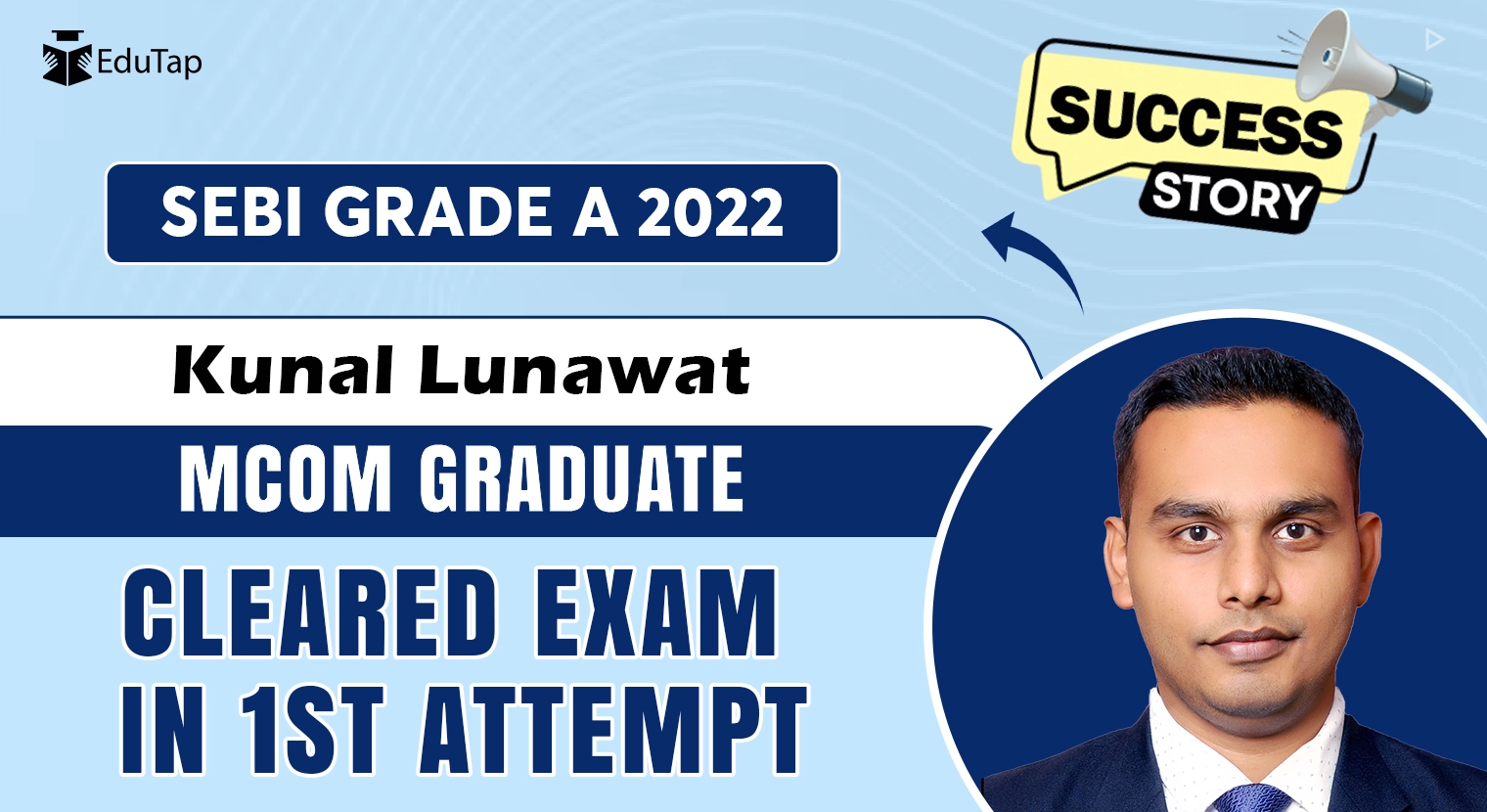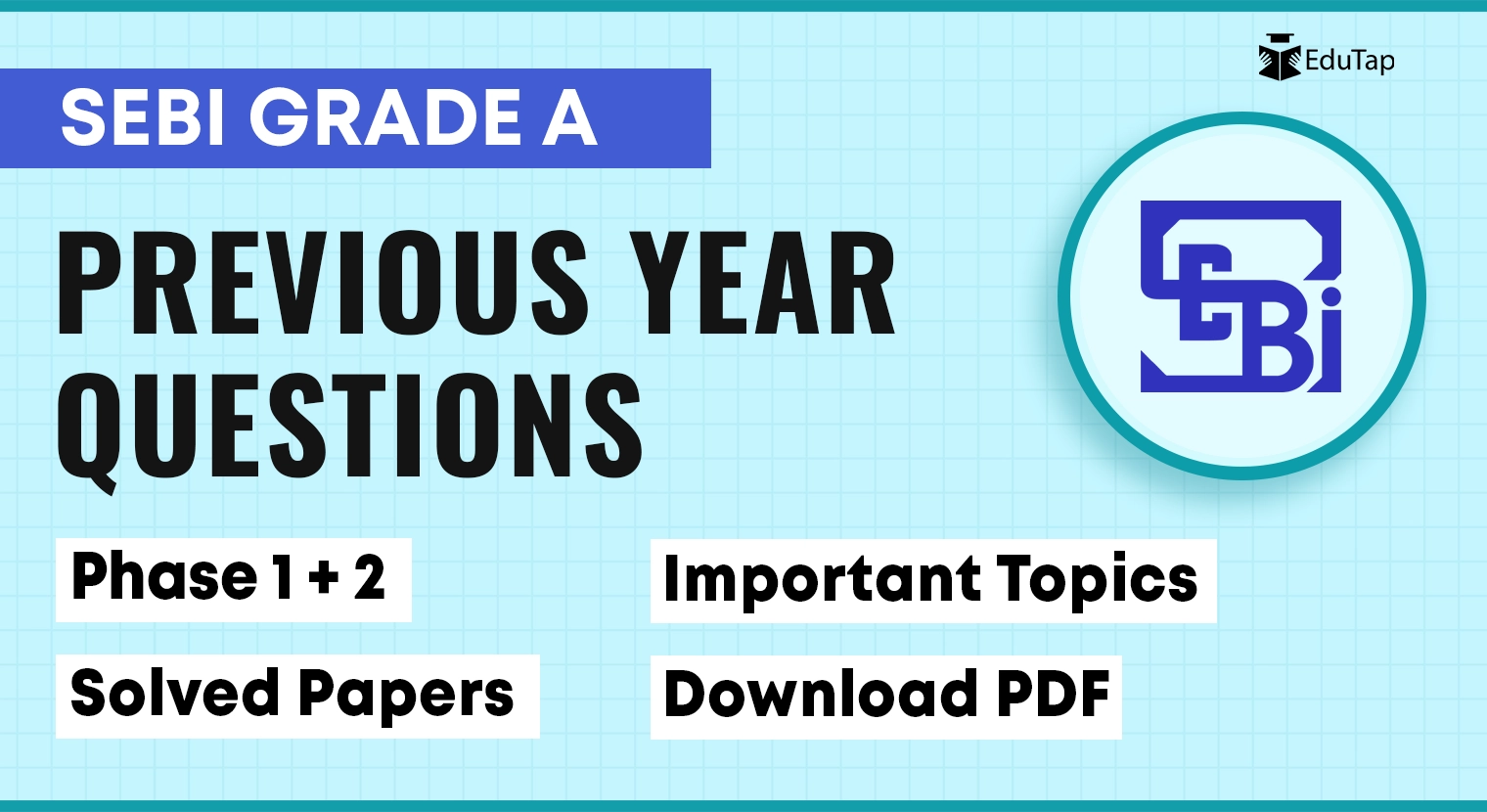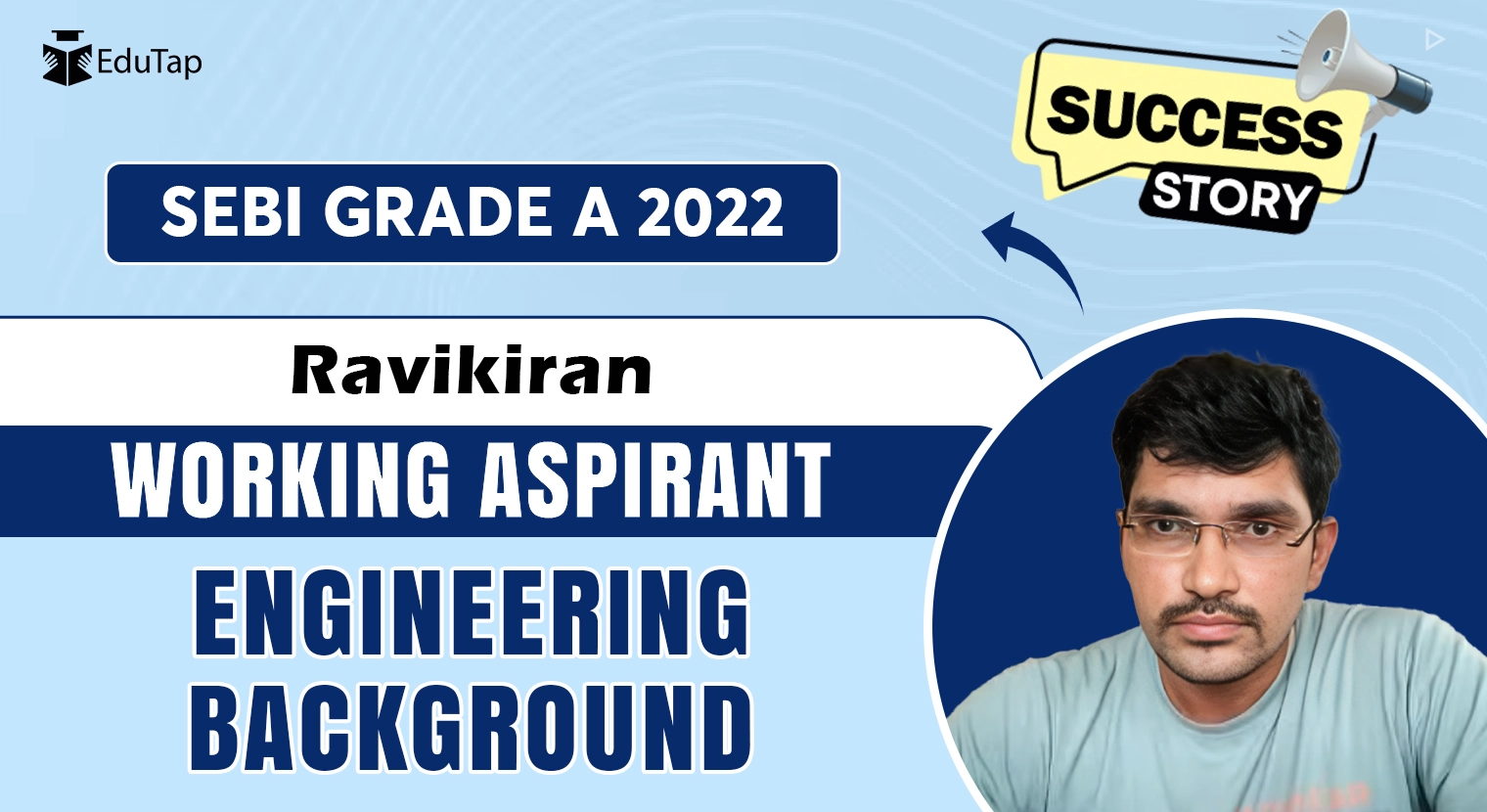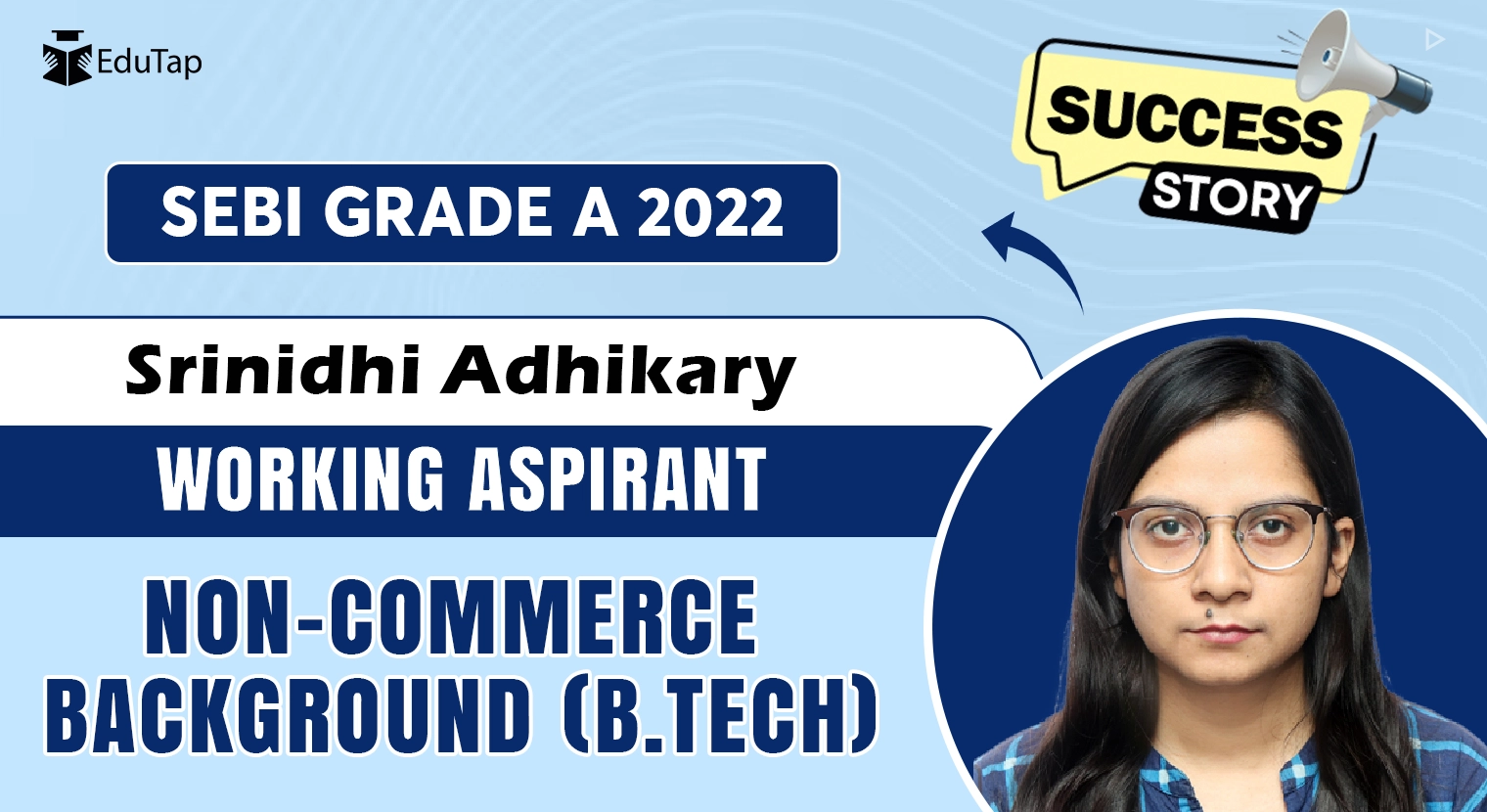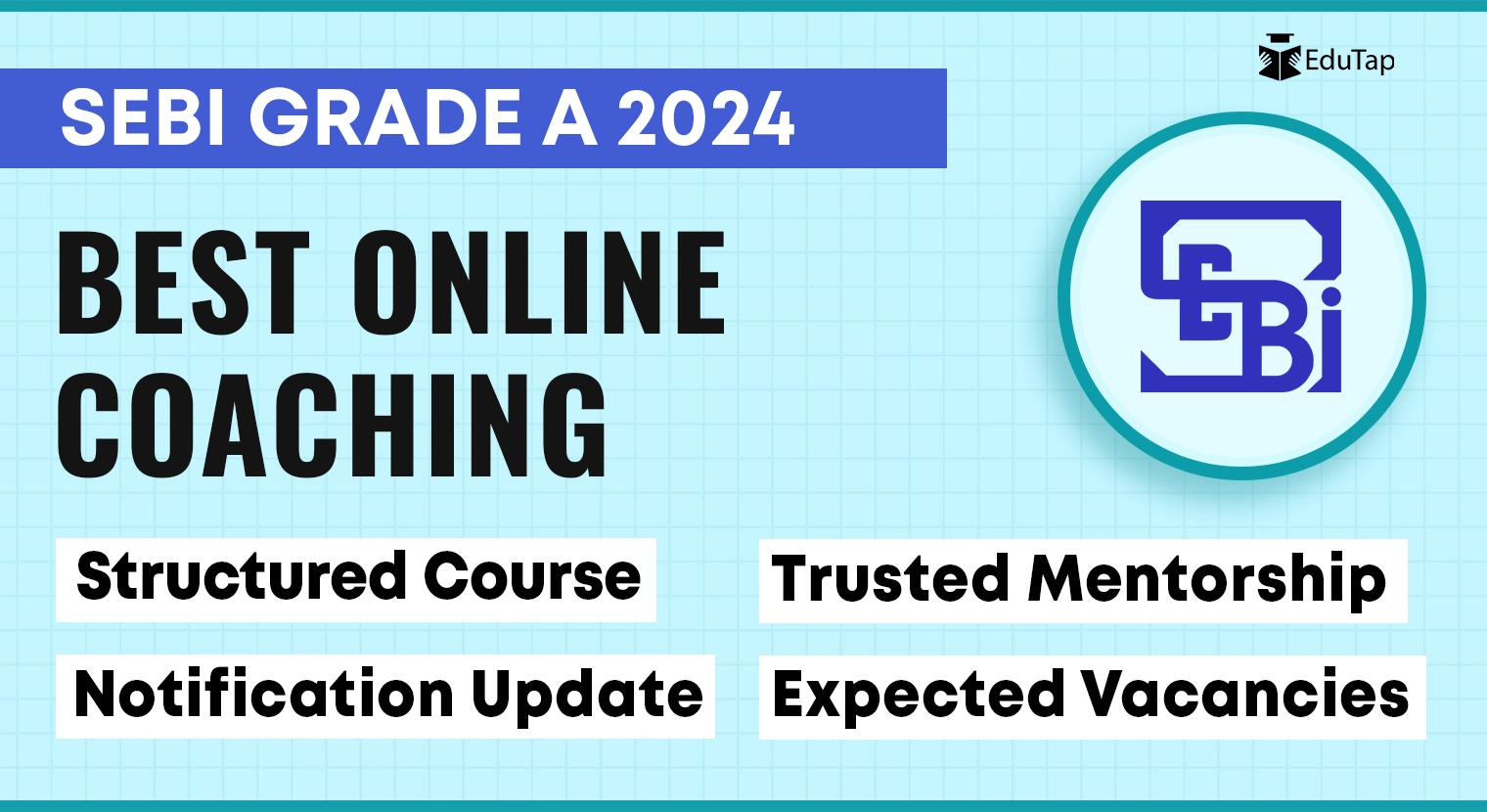This blog explores the preparation journey of Kunal to crack the SEBI Grade A exam in his very first attempt. From his academic background in Commerce to navigating through various competitive government exams, Kunal’s story is a great example of strategic planning.
We will break down his phase-wise approach, balancing work commitments with study hours, and his personalised methods for covering each exam section. Kunal’s journey offers valuable insights and tips for aspiring candidates aiming to conquer similar challenges in competitive exams.
Educational Background and Other Details
Kunal graduated with a Masters in Commerce (MCom) from Pune University in 2020. He decided to appear for competitive exams in 2016, right after completing his bachelor’s degree.
His initial years included attempts at various competitive exams, including the UPSC Civil Service exam, the CAPF exam, and the IB ACIO exam. His perseverance paid off when he cleared the CAPF and IB ACIO exams.
The COVID-19 pandemic led to the postponement of a few exams, including the SEBI exam, for which Kunal wasn’t eligible at the time due to his pending final MCom exam. However, he stayed informed about the exam through Telegram channels and YouTube videos, which eventually led him to SEBI. In 2022, he attempted the SEBI Grade A exam for the first time and was able to successfully crack it.
Why Regulatory Bodies?
Kunal’s interest in administration, economics, and finance, coupled with his commerce background, naturally drew him towards regulatory bodies like SEBI and RBI.
He was initially unaware of the career opportunities in the government sector presented by regulatory body exams. It was only during his preparation phase, when he couldn’t make it to his desired exam, that he learned about these lesser-known yet equally rewarding opportunities.
He was particularly attracted to SEBI due to its challenging nature and the massive state of capital markets in India. He believed that there would be a huge opportunity to work in this sector in the coming decades, which kept him motivated throughout his preparation for the exam.
Balancing Work and Preparation
Kunal was a working professional during his preparation for the SEBI Grade A exam. Let’s see how he balanced his SEBI Grade A preparation with office hours.
- He dedicated three to four hours after office hours for his SEBI preparation on working days.
- On weekends, he studied for eight to ten hours.
- His background and interest in the field helped him grasp concepts quickly, enabling him to complete the syllabus at a faster pace.
- He emphasised the importance of planning and identifying important topics in the syllabus.
- He suggested that aspirants should identify the areas where they need more preparation (strengths and weaknesses) and schedule their study time accordingly.
- He started his full-fledged preparation for the SEBI Grade A exam in January after the notification was released.
- Even during working hours, he utilised any free time he got to run through current affairs on his mobile phone.
- His dedication and motivation were key to his success.
His story is an example for future aspirants that it is indeed possible for working professionals to clear competitive exams like SEBI Grade A. However, it requires a balance of hard work, smart planning, and unwavering dedication.
SEBI Grade A Phase 1 Preparation Strategy
Here’s the phase one strategy of Kunal, broken down subject-wise:
Quantitative Aptitude, Reasoning, English, and General Awareness
- Kunal had a good understanding of QRE and GA, which were his strong points.
- He gave three to four mock tests and consistently scored well above 15, confirming these as his core areas.
- He did not devote much time to the preparation of QRE and GA, instead focusing on giving mock tests.
Finance, Costing, and Accounting
- Being from a commerce background, these subjects were Kunal’s strengths.
- For Finance, he watched a few videos. He also read notes available online but did not refer to any specific reference book. Instead, he searched for videos or notes topic-wise and referred to them later for revision.
- Kunal tackled the numerical problems in Costing, Commerce, and Accountancy by solving one or two questions from each topic during his preparation.
- He made notes of one or two examples and concepts related to each topic, which he used for revision.
- For technical subjects like Costing and Accountancy, Kunal suggested that freshers or those from non-commerce backgrounds should start with the basics.
- He recommended watching lectures of 11th or 12th standard for a basic understanding of the concepts. Once the basics are clear, they can move on to the advanced topics.
Companies Act
When it came to the Companies Act, a subject that requires a significant amount of memorization, Kunal had a unique approach to revision and recall. Here’s how he tackled this challenging topic:
- Printed Material: Kunal started by taking a printout of the bare act of the Companies Act, focusing specifically on the chapters mentioned in the syllabus. He also printed the full index of the act.
- Highlighting Important Sections: He then highlighted the important sections in the index. The index, which was about seven to eight pages long, served as a quick reference guide for him.
- Daily Revision: Kunal made it a habit to read the index daily, focusing on the highlighted sections. This helped him recall the important sections effectively.
- Recall and Elimination: Even if he couldn’t recall the correct section during the exam, his familiarity with the index helped him eliminate incorrect options. This strategy proved to be quite effective in answering questions related to the Companies Act.
- Consistent Revision: Kunal emphasised the importance of consistent revision. He believed that repeatedly revising the material ensured that it stayed fresh in his mind during the exam.
Management and Economics
During his Paper 2 preparation, Kunal found Management and Economics to require more effort. He had not previously succeeded in exams that included these subjects, so he had to put in extra work for them.
The Economics section saw a significant change this time around. The questions were more conceptual and of a higher level than anyone could have anticipated. Despite the unexpected difficulty, Kunal attempted 75% of the Economics questions. He left two to three questions that were quite advanced and more suited for candidates appearing for the research stream.

Strategy for Descriptive English for SEBI Grade A
Kunal’s strategy for the Descriptive English section was a blend of integrated preparation, mock tests, and practical considerations. He devoted 20% to 30% of his total preparation time to English, recognizing it as a deciding factor.
Essay Writing
- Kunal followed a regular flow for essay writing, starting with an introduction, followed by the main body, and concluding with a positive conclusion or a way ahead.
- In the main body, he tried to cover all dimensions – political, economic, social, and technological advancements related to the topic. He wrote at least two sentences for each dimension.
Reading Comprehension
- Kunal found the reading comprehension not tough, but challenging due to the interface. Only three lines of the passage were visible at a time, and the questions were at the bottom.
- His strategy was to read the passage once and then directly write the answer. He suggested reading the question once and then directly reading the passage once, as there won’t be enough time to go back and forth between the question and the passage.
- He wrote the answers in paragraph form.
General Tips
- For Phase 2 Paper 1, he had to rush towards the end, particularly for the sentences part, due to time wasted during the essay and grading compilation because of interface issues.
- Kunal appeared for four to five mock tests for Descriptive English. He emphasised the importance of mock tests, especially for descriptive exams. He noted that people are losing touch with phrasing sentences, writing within a word limit, and writing within a given time.
- Kunal also shared his experience of facing a little panic during the exam. He practised on his laptop and was comfortable with it, but found the actual exam’s user interface not very good and the keyboard not very smooth.
- He suggested that when writing the essay, one should give 1-2 minutes to think and have a clear outline in their mind of what they want to write or type before they start typing. This is because you cannot edit what you’ve written in the middle; you can only use backspace.
- He advised practising on keyboards that are not very good to get in touch with the reality of the exam interface.
In summary, Kunal’s strategy for Descriptive English involved a structured approach to essay writing, a specific strategy for handling reading comprehension, and practical tips for dealing with the difficulties of the exam interface.
SEBI Grade A Phase 2 Paper 2 Strategy
Kunal adopted an integrated preparation approach from Phase 1 itself for Management and Economics. For other subjects, he didn’t delve much during Phase 1. Once Phase 1 was over and he was confident of clearing it, he started to go into the depth of the other technical subjects.
During the exam, Kunal smartly managed his time and was able to complete Paper 2 in time and revisit all the questions once in the last seven to eight minutes.
- Kunal’s strategy was to first attempt the easy questions.
- When he read a question, he got a sense of whether he was comfortable with the topic and confident in solving it. He also understood the steps involved in getting the answer to such questions.
- If he thought a question could be solved in 30 or 45 seconds, he attempted it immediately. If a question was lengthy or he was not fully confident, he marked it for review and moved on to the next question.
- He emphasised that it should not happen that for one question, you are leaving three to four questions. So, time management and strategic question selection were key to his approach.
- Kunal found the numericals in Commerce and Accountancy and the Management part to be tricky.
- He was able to easily solve two numericals. For the difficult ones, he skipped them initially.
- Once he finished the complete paper and had some time left, he tried to find shortcuts or answers for another one of the difficult numericals. One numerical, he left.
In summary, Kunal’s strategy for Phase 2 Paper 2 involved effective time management, a strategic approach to handling numericals, and a thoughtful selection of questions to attempt based on his comfort and confidence levels.

Interview Experience
Kunal’s interview experience was a blend of technical questions, personal inquiries, and surprises. Here’s a detailed account of his experience:
- The interview panel was quite cordial and consisted of four members, including one chairman, three members, one of whom was a lady, and one person from the RBI.
- The interview started with a very technical question. Kunal was expecting an HR round with questions like ‘tell me about yourself’, but was taken by surprise.
- The panel cross-questioned him to a three to four-level depth for every answer, aiming to get a deeper understanding of the topic.
- They read his PIF and asked him about the gap between his bachelor’s and master’s degrees. Kunal explained that he took admission for his Master’s, was preparing for other exams, and then got a job opportunity for subsistence.
- The panel inferred from his answers that either he did not have a workload or he was not doing justice to his job. Kunal explained how he managed his studies during this period.
Interview Preparation
- Kunal took a couple of mock interviews and discussed his PIF with a couple of his seniors at his workplace and known people.
- He gave his first mock interview at EduTap. One senior person from RBI and one person from another regulatory body, NABARD, were there on the panel.
- The seniors asked a diverse set of questions and guided him on how to frame his answers better.
Kunal learned that it’s important to be prepared for unexpected questions and to stay calm when faced with puzzling questions. He found the mock interviews helpful in refining his preparation for further mock interviews and the final interview.
You can listen to Kunal share his journey in his own words in the following video.
Message for Aspirants
Concluding his interview with EduTap, Kunal shared some valuable advice for aspirants preparing for competitive exams:
- Consistent Preparation: Kunal emphasised the importance of consistent preparation with perseverance. He believes that success might come sooner or later, but if you are determined, you will achieve it.
- Stay Positive: If you don’t get the desired outcome, don’t be disheartened. Try to find similar opportunities which you can capitalise on at a later stage. Keep your morale high and focus on what else you can do to get a better outcome.
- Make the Most of Each Opportunity: If you miss one opportunity, remember that there is another opportunity waiting for you. The key is to make an effort rather than waste time regretting missed opportunities.
- Time Management: In competitive exams, it’s essential to manage your time during the exam hours. If a question is difficult, complete the other questions first and then, if time permits, deliberate upon the tough question.
- Tackling Questions: Use various techniques such as elimination and recalling to tackle questions. If you are confident and can eliminate two options, leaving a 50-50 probability, take a chance. Given the negative marking is one-third or one-fourth, a 50% probability structure is a good probability in such highly competitive exams.
- Understanding Concepts: Kunal emphasised the importance of understanding the concepts, as the exam is quite conceptual. Mugging up won’t help much, except in subjects like the Companies Act.
- Leveraging Previous Year Questions: Kunal suggested that aspirants should first watch previous year’s questions to understand the type of questions asked. He recommended referring to two to three sources for previous year’s questions as these exams do not publish papers and whatever questions are available are memory-based.
- Expanding the Horizon: Kunal also suggested expanding the horizon and watching questions of related exams of the same difficulty level. This can help refine the preparation and also serve as a revision tool.
In conclusion, Kunal’s preparation journey highlights the importance of consistent preparation, staying positive, making the most of each opportunity, effective time management, understanding concepts, reading through the previous year’s questions, and preparing strategically.
